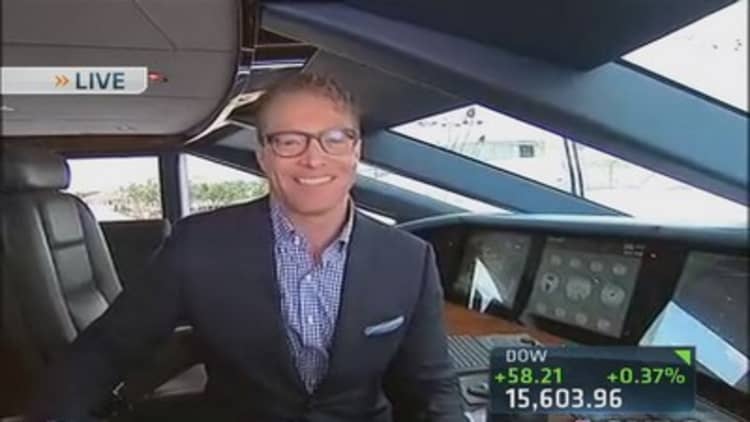In Colorado and New York, voters on Tuesday will be deciding on one of the most divisive issues of our time: taxing the wealthy.
In New York, mayoral candidate Bill de Blasio is leading polls with a platform centered on hiking taxes on the city's wealthy—already among the highest taxed in the country.
"I think it's time that that they give us a little more so we can make the kind of investments we need for our future," De Blasio told reporters last month.
In Colorado, voters are set to decide on Amendment 66, which would replace a 4.63 percent flat tax with a tax of 5 percent for income up to $75,000 and 5.9 percent on income above $75,000. The added revenue from the tax would be used for education.
But it's the call to raise the federal taxes on the rich that seems to be rising in the media. Billionaire Bill Gross is the latest— and loudest—to weigh in.
(Read more: Wealthy investors spooked by debt crisis)
In his latest Investment Outlook, titled "Scrooge McDucks," the outspoken Pimco co-founder said that with tax reform back on the radar, the focus should be on taxing the wealthy. Yes, he knows the rich work hard. And yes, he knows they pay an outsized share of the taxes.
But Gross said the wealthy really didn't earn all of their wealth. They are lucky beneficiaries of a decades-long credit boom that poured money into the hands of the financially skilled.
"You did not, as President Obama averred, 'build that,' you did not create that wave," he wrote. "You rode it. And now it's time to kick out and share some of your good fortune by paying higher taxes or reforming them to favor economic growth and labor, as opposed to corporate profits and individual gazillions."

Specifically, he said the lower tax rate on capital gains should end. (The idea was also raised by Jim Stewart in his New York Times column Saturday).
The piece echoes a similar Investment Outlook that Gross wrote in 2007, when he said the wealthy got rich by "taking risks with other people's money" and low taxes. He added that America coddles the rich and that "it is in fact society's wind and its current willingness to nurture the rich that fills their sails."
(Read more: Wealthy could lose big if Fed stops money flow)
Gross's latest piece is touching off a firestorm on the web. Many counter that the top 1 percent already pay more than 36 percent of the federal taxes and 40 percent of the income taxes in high-tax states like New York and California. Others point out that Gross focuses on people who made their fortunes from finance—those who "borrowed money or charged fees on expanding financial assets."
He ignores the vast number of millionaires and billionaires who made their fortunes by starting companies—whether it's a trucking company or tech company, or maker of electric cars or Spanx. Should those people also feel guilty?
And with so many Americans not paying any federal income taxes, many argue that the wealthy already carry enough of the burden.
(Read more: Reviled 'rich girl' calls critics 'idiots')
Gross said the share of taxes is less important than the share of income. The top 1 percent, he said, earn 20 percent of the nation's income, twice what they earned in the 1970s.
Whatever you think of his argument, Gross has clearly outlined the two numbers that will no doubt remain at the center of the tax-the-wealthy debate—whether it's in Washington, or Colorado or New York. Those opposing higher taxes point to the amount of taxes paid by the wealthy. Those supporting higher taxes point to their incomes and share of wealth.
Where you stand on the issue, depends on which number you think is more important.
—By CNBC's Robert Frank. Follow him on Twitter @robtfrank.
Watch "Secret Lives of the Super Rich," an all-new series airing Wednesdays at 9 p.m. ET/PT. http://superrich.cnbc.com


